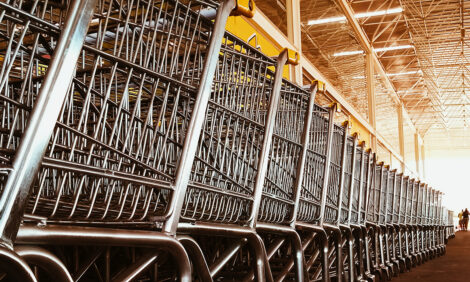



British Egg Industry Council Concerned to Protect Hens
UK - The British Egg Industry Council (BEIC), which represents more than 95 per cent of UK free range egg production, has advised that although some free range hens will be allowed back outside this week, some free range farmers will choose to temporarily keep their hens housed, to protect them from the continued risk of avian influenza.A particularly virulent strain of avian influenza has been circulating in wild birds across the UK and Europe for several months and Government restrictions in place since December have required all commercial poultry farmers to house free range birds, as part of the UK-wide Avian Influenza Prevention Zone.
Defra has advised that all areas of England should still be considered at high risk from avian influenza, but that from 28 February free range egg producers in some areas of England can let their birds outside again, with additional biosecurity measures in place, after a self-assessment. In Scotland and Wales a similar risk assessment needs to be carried out.
However, the continuing outbreaks of avian influenza across the UK and Europe mean that egg producers and their veterinary advisors remain concerned about the AI risk, and some producers are choosing to keep their hens housed.
BEIC Chief Executive Mark Williams comments: “The UK has the largest free range flock in Europe and we are proud of the high standards of British free range farms. Under normal circumstances we encourage birds to range outside freely, by planting trees and providing other shelter. The need to protect birds from avian influenza has to be our top priority.”
Labelling of egg packs
Under EU legislation, eggs from free range hens which are required to be housed to protect animal health can continue to be marketed as free range for up to 12 weeks. After that date, eggs from hens temporarily housed need to be labelled accordingly.
All BEIC members’ free range egg packs will temporarily carry stickers from 1 March 2017, informing consumers that the eggs have been laid by hens currently kept in barns. There will also be signs near where eggs are sold highlighting this and a website has been set up – www.freerangeinfo.com (link is external) .
Mark Williams says: “The need to change labelling of free range egg packs after 12-weeks is an EU requirement. However these are all still free range hens but some are temporarily housed to protect them from bird flu. Free range producers still incur the same costs for land and staff while birds are housed, and in many cases are facing increased costs for additional biosecurity.
“We need to avoid a potential ‘postcode lottery’ whereby individual farmers could be penalised if they have chosen to temporarily continue to keep their hens inside. Therefore all of our members, supported by retailers, have taken the decision to label all free range eggs, to help protect the future of the British free range sector.”
“Our research shows that consumers are supportive of farmers putting birds’ health first and 80 per cent are happy to continue to pay the same price, or more, for eggs from free range flocks temporarily housed inside.”








